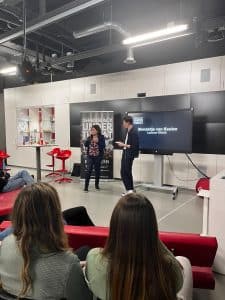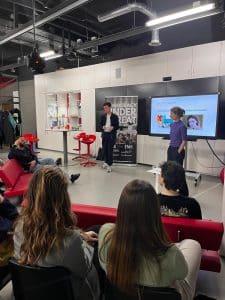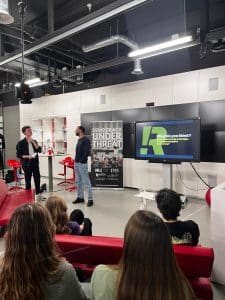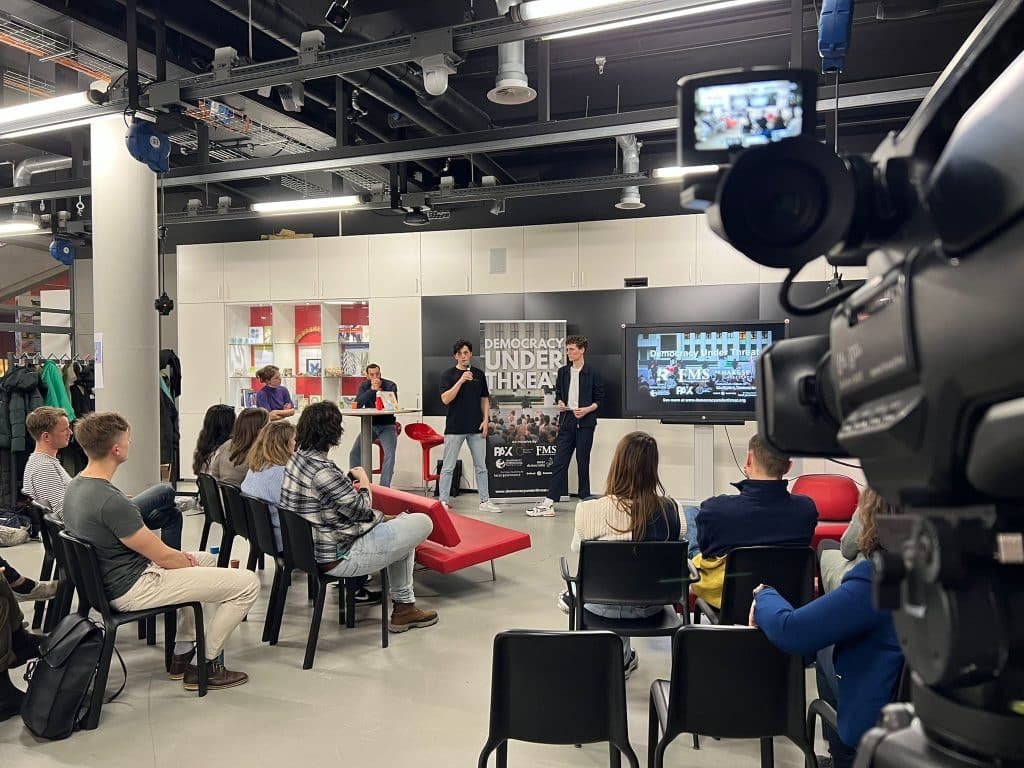Democracy in the Netherlands is also under pressure. That is why students from The Hague came together last night to discuss the future of Europe, organised by Foundation Max van der Stoel and the Haagse Hogeschool. The event was part of the Democracy under Pressure campaign, and discussed point 15 of the manifesto: involve the interests of future generations in decision-making processes.
The event began with several propositions such as the voting age should go to 16, referendums are a good way to involve young people in politics and countries that undermine European democratic values, such as Poland and Hungary should be expelled from the European Union.
Next, Mendeltje van Keulen, professor of European Studies at The Hague University of Applied Sciences, made a pitch on the transparency of the European Union, which many citizens, however, do not know about. One solution to this would be to put more emphasis on the European Union in education and the media.

Yadira de Jong, involved in the climate citizen council, spoke about the importance of citizen council to strengthen democracy and take decisions on distributive issues. These are randomly selected citizens, based on the idea that ordinary citizens should be represented in the assembly, of any age, gender and from any social class and region.

Founder #represent himself Younes Douari spoke about the work this organisation does to attract, especially young people from non-Western backgrounds to the ballot boxes, who often do not normally vote. This is especially important as this audience often lacks confidence in politics, but this cannot be built up either without proper representation. This vicious circle was also discussed further in the conversation after Younes' pitch.

More information on Democracy under Pressure can be found at https://democracyunderthreat.org/. On 27 March, between 19:30 and 22:30, the full Democracy under Pressure coalition invites everyone to participate in the closing event at Pakhuis de Zwijger Metropolis Zuidoost, where the importance of democracy and working on its legitimacy will be discussed, even in the places where it is not always obvious.





